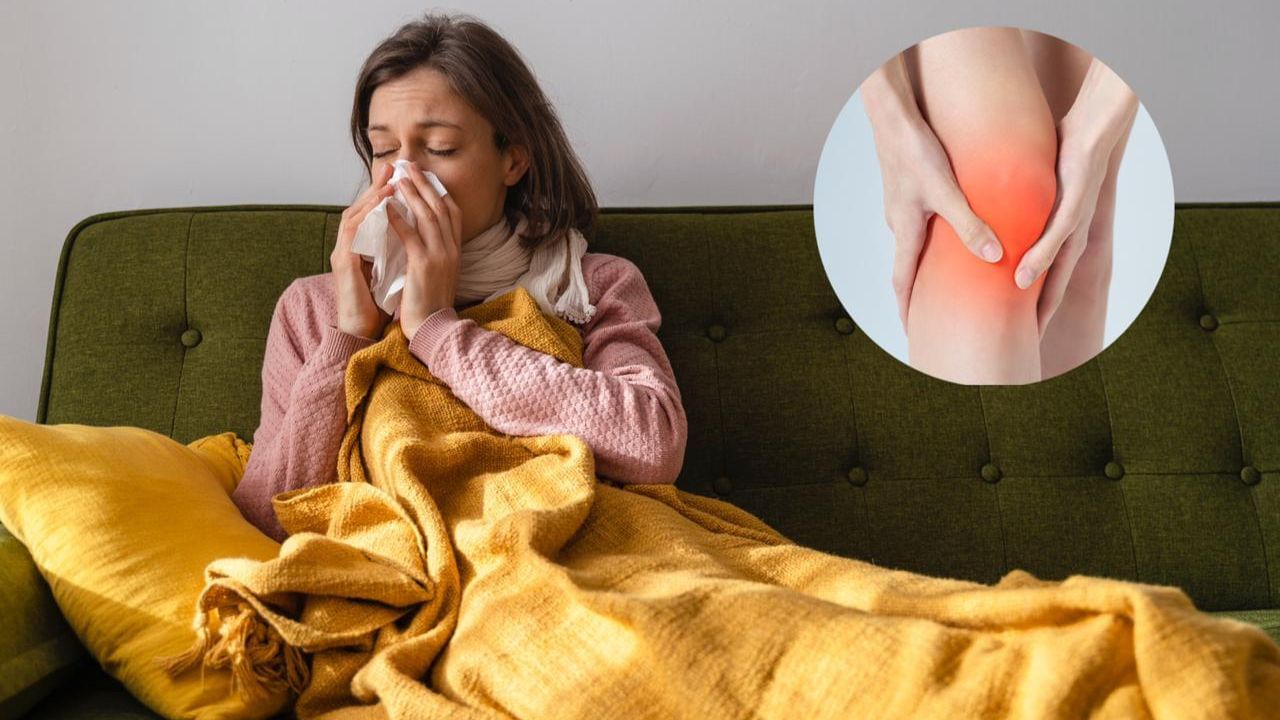Pneumonia also affects joints Image Credit source: Getty Images
During the winter season, people often ignore cough, cold or fever as a normal seasonal problem, but experts warn that sometimes it can also be a sign of a serious condition like pneumonia. This infection not only affects the lungs but also impacts the overall functioning of the body, including fatigue, muscle and joint pain, and slow recovery. Orthopedic, pulmonology and pediatric experts believe that the effect of pneumonia and other seasonal infections is visible in different forms on every age group. In adults, it can increase weakness of joints and muscles, in children it can cause respiratory complications, while in the elderly it weakens the body’s immunity. This is why it is very important to adopt timely identification, proper treatment, nutritious diet and preventive measures.
pneumonia It often starts with common cold-like symptoms, but gradually its symptoms start becoming serious. Its main symptoms are persistent high fever, chills, cough with yellow or green phlegm, difficulty in breathing, chest pain, extreme fatigue and weakness. Many patients also feel dizziness or restlessness due to shortness of breath or lack of oxygen. Symptoms sometimes appear differently in children and the elderly, such as lethargy, loss of appetite or sudden rapid breathing. If these symptoms persist for more than two-three days, do not ignore it as a common cold and consult a doctor immediately.
How does pneumonia damage joints?
Dr. Abhishek Kumar Mishra, Senior Consultant Orthopedics and Spine, Apollo Spectra Hospital, Delhi It is said that after pneumonia or any seasonal infection, swelling and fatigue in the body can last for a long time. This condition can cause pain or stiffness in the joints and muscles, slowing recovery. Weak immunity and prolonged bed rest also affect the bones. Therefore, after infection, it is very important to take light exercise, physical therapy, hydration and a protein-rich diet, so that the body can recover quickly and the joints are not affected again.
Dr. Tanya Chaturvedi, Attending Consultant Pediatrics at Regency Hospital, Gorakhpur. It is said that cases of pneumonia are seen more in children in winter because their immune system is not fully developed yet. This infection often starts with cold and cough and reaches the lungs, causing symptoms like fever, shortness of breath and lethargy. Parents should provide adequate rest, nutritious diet and fluids to the child. Contact the doctor immediately in case of any serious symptoms, so that the child can be protected with timely treatment and vaccine.
Do not consider pneumonia as a minor cold.
Dr. Sandeep Katyar, Senior Consultant Pulmonology at Apollo Spectra Hospital, Kanpur It is said that people often consider pneumonia as common cold, whereas it is a serious condition of lung infection. This can cause difficulty in breathing, fatigue, lack of oxygen and weakness. Post-viral fatigue persists for a long time in many patients. Timely checkup, complete course of medicine and a balanced diet are very important so that the infection does not return and lung function remains protected.
Pneumonia is not just a common winter cold, but a serious infection that can affect the entire functioning of the body. Starting from the lungs, it affects the muscles, joints and immune system. Experts say that its prevention is possible through timely detection, adequate rest, nutritious diet, cleanliness and vaccine. Taking seasonal infections lightly can lead to major complications in the future. Therefore, it is important to make body care, hydration and regular check-ups a part of the lifestyle during cold weather, because caution is the best protection.
